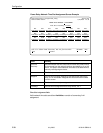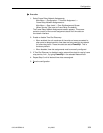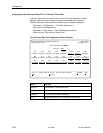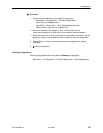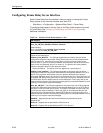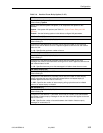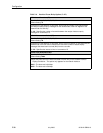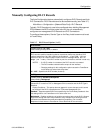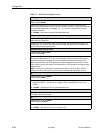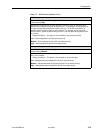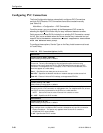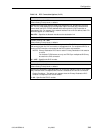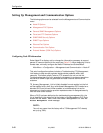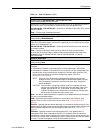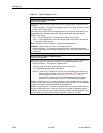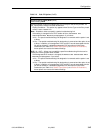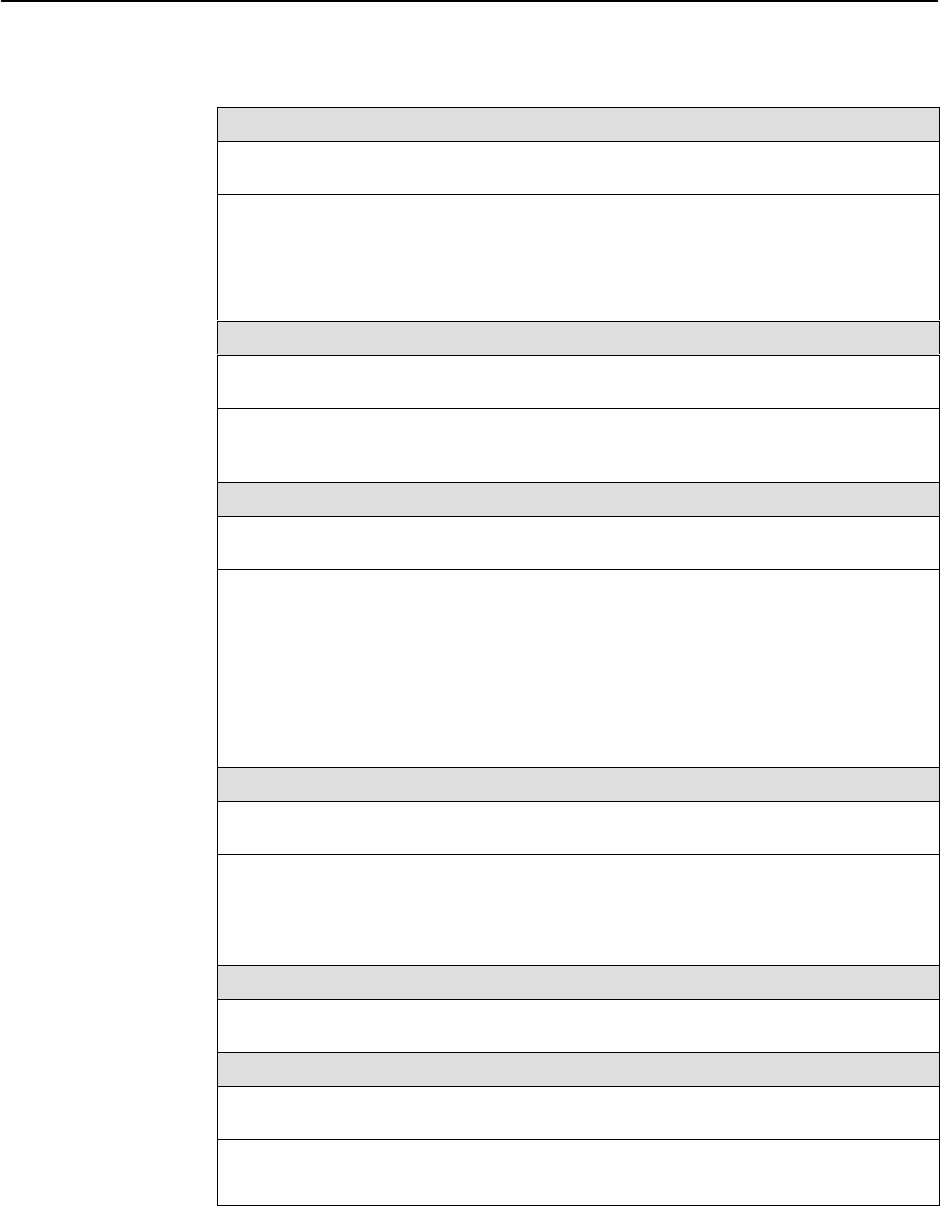
Configuration
3-38
9123-A2-GB20-10
July 2000
Table 3-7. DLCI Record Options (2 of 3)
CIR (bps)
Possible Settings: 0 – 1536000
Default Setting: 64000
Determines the data rate for the DLCI that the network commits to accept and carry
without discarding frames; the CIR in bits per second. Entry of an invalid rate causes the
error message Value Out of Range (0 –
x
), where
x
= the maximum line rate
available on the port.
0 – 1536000 – Specifies the network-committed data rate.
Tc
Possible Settings: 1 – 65535
Default Setting: Read Only
Displays the DLCI’s calculated value of its committed rate measurement interval (Tc) in
milliseconds. This value is calculated based upon the settings for the Committed Burst
Size Bc (Bits) and CIR (bps) options.
Committed Burst Size Bc (Bits)
Possible Settings: CIR, Other
Default Setting: CIR
Specifies whether the DLCI’s committed burst size will follow the CIR, or whether it will
be entered independently. This value is the maximum amount of data that the service
provider has agreed to accept during the committed rate measurement interval (Tc).
CIR – Uses the value in the CIR (bps) option as the committed burst size (Bc). The Bc
and excess burst size (Be) options are updated when a CIR update is received from the
network switch.
Other – Allows you to specify the committed burst size for the DLCI. When Other is
selected, the Bc and Be values must be manually entered and maintained, as well.
Bc
Possible Settings: 0 – 1536000
Default Setting: 64000
Allows you to display or change the DLCI’s committed burst size.
Display Conditions
– This option only appears when Committed Burst Size is set
to Other.
0 – 1536000 – Specifies the DLCI’s committed burst size.
Excess Burst Size (Bits)
Specifies the maximum amount of data in bits that the network may accept beyond the
CIR without discarding frames.
Be
Possible Settings: 0 – 1536000
Default Setting: 1472000
Allows you to display or change the DLCI’s excess burst size.
0 – 1536000 – Specifies the DLCI’s excess burst size.



